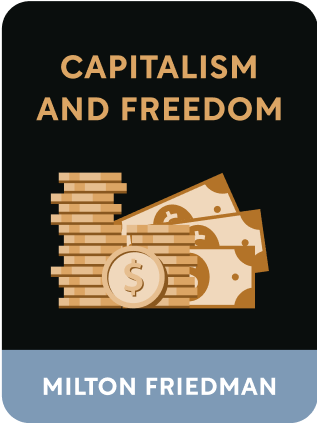

This article is an excerpt from the Shortform book guide to "Capitalism and Freedom" by Milton Friedman. Shortform has the world's best summaries and analyses of books you should be reading.
Like this article? Sign up for a free trial here .
Is capitalism in healthcare a good system? Can capitalism help improve access and quality of medical care?
Milton Friedman argues that capitalism in healthcare is a good idea. He suggests that the AMA has a monopoly on deciding who can become a doctor and the requirements and that people should be able to choose to pay more for higher quality doctors.
Read more about Milton Friedman’s ideas on capitalism in healthcare.
Capitalism in Healthcare: Medical Licensing and the AMA
Although such licensing requirements for medicine are clearly arbitrary, it is true that medical practice presents a more compelling case for stringent professional licensure than other professions. After all, we surely wish to be protected from incompetent and unqualified doctors. But while there is a stronger rationale for medical licensing than there is for something like cosmetology, medical licensure still imposes a cost.
The largest and most powerful association of medical professionals in the United States is the American Medical Association (AMA). For decades, the AMA has exerted a dominant and near-monopolistic control over the practice of medicine in America, specifically through its control of the supply of incoming doctors. The AMA works closely with state legislatures to create high barriers to entry for medical students looking to break into the profession.
One way they do this is through controlling medical schools. All US states require that doctors obtain a license to practice in the state. A universal requirement of such licenses is that the doctor must have graduated from a credentialed medical school. But the only credentialed medical schools in every state are those approved by the AMA. This is why capitalism in healthcare may be beneficial.
Controlling the Doctor Supply, Lowering Quality of Care
The typical rationale for such restrictions is that they ensure that physicians are of the highest quality. But it is not clear that medical licensing succeeds even on these grounds, and capitalism in healthcare might help solve some of these problems.
If you are unable to access a doctor or afford to see one because of the limited supply, you might have your medical needs go untreated. Licensing regimes might guarantee high quality of care for those who can access it; but by severely reducing the quantity of care available to the general population, they harm overall health outcomes. Quantity cannot be separated from quality. Capitalism in healthcare could change this.
Furthermore, many components of what is legally defined as medical practice are actually capable of being performed by technicians and other non-doctors. Thus doctors end up spending an inordinate amount of time engaging in aspects of medicine that could be more efficiently and cheaply handled by others—further reducing the quality of care for everyone.
It would be better to loosen restrictions on who can become a doctor and let more physicians enter the field. This would increase the supply of doctors and lower costs and barriers to access for patients. There is a variety of quality in every market—we pay more for high-quality organic foods than we do for canned or freeze-dried foods. There’s no reason that the market for medical services should function any differently. After all, we don’t demand that every car be a Rolls-Royce, because then only the wealthy elite would be able to afford automobiles. Capitalism in healthcare would similarly increase accessibility.

———End of Preview———
Like what you just read? Read the rest of the world's best book summary and analysis of Milton Friedman's "Capitalism and Freedom" at Shortform .
Here's what you'll find in our full Capitalism and Freedom summary :
- The key principles from Milton Friedman's Nobel Prize-winning book
- Why capitalism functions best when it is freed from government restraints
- How forced redistribution schemes are morally unjust






